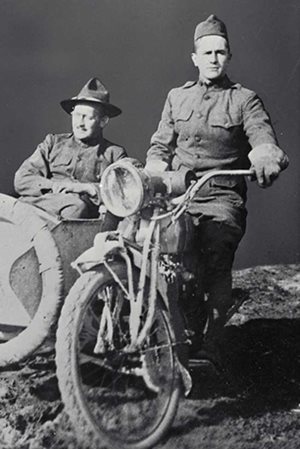A year later, at the age of 23, in September 1923, he married his college sweetheart, Laura Adeline Peart. They moved in across the hall from Mom and Dad Bechtel in the Art Deco apartment building W. A. and partners had built near Lake Merritt in Oakland, California. On May 10, 1925, Stephen D. Bechtel Jr. was born, and not long after that Laura gave birth to a daughter, Barbara.
By the time Steve Sr. reached his late 20s, he was in effect the CEO of Bechtel-Kaiser’s joint operations, and was eagerly pressing Dad and Henry Kaiser to get into the pipeline business. An early and ardent advocate of company expansion, Steve wanted W. A. Bechtel to pursue a more diverse workload, and to reach out geographically to broaden what was essentially a regional concern.
When Dad Bechtel died unexpectedly in 1933, in the middle of the Hoover Dam project, there was little doubt who would take his place. Steve Bechtel, then 33, was already on the executive committee of the Six Companies consortium building the dam, in charge of all administration, purchasing, and transportation. “I was temperamentally more suited to take on the lead,” said Steve. “Warren, Kenny, and I had several talks, and Warren just didn’t want to work like we wanted to work.”
A moderate man, Steve went to bed early, politely excusing himself from most social functions around 10 o’clock. By 7:30 a.m., he was usually at his desk at 155 Sansome Street—that is, when he was in town. He and Laura spent six months a year visiting Bechtel projects around the world.
Steve was a hands-on manager, yet he ran a loose, informal organization that suited his relaxed style. Until Simpson came on board in 1942, Steve received all the financial advice he needed from Bechtel’s attorney, Robert Bridges, and an accountant named George Walling. Steve’s sense of his own role was crystal clear: He would provide long-range leadership and direction and let the circle of strong lieutenants he’d gathered worry about day-to-day concerns.
The ability to make bold strategic shifts, particularly when a company is doing well, is the hallmark of visionary corporate leadership, and Steve possessed it. “Moving into engineering was a major change and a very important one,” said Bridges. “And Steve got very little support from the rest of us to do it.” He pushed equally hard for international diversification. “Nobody around here wanted to go foreign,” observed Bill Waste, Steve’s senior inside manager. “But Steve kept hammering away and one thing led to another, and we got the job in Venezuela. We didn’t have a policy then. Nobody knew what a policy was. We just evolved into these things. He was so far ahead of his own people that sometimes it was hard to understand what he was really thinking about. None of us knew what nuclear meant. It was so far beyond our knowledge we never would have gotten into it. It took vision. And that vision was 99 percent Steve.”
He even turned a bad error into a strategic turnaround. A costly mistake on a tunnel project convinced him that Bechtel should concentrate on services such as engineering and construction management, and that they should avoid heavy financial commitments associated with grand projects. His preference for services was reinforced by his aversion to debt, because he wanted to control his own destiny. And Steve Sr. was a masterful salesman—more than any other single person, he was responsible for the company’s business development.
In 1960, at the age of 60, Steve decided to step aside and turn the business over to his son, Steve Jr. The elder Bechtel moved up briefly to chairman before assuming the title senior director, a position which, he happily observed, carried with it absolutely no authority and no responsibilities. Although Steve Sr. would remain a trusted adviser, there was no question who was now in charge. For a vigorous 60-year-old CEO who was head of a thriving, worldwide business, giving up the reins was not easy, as Steve Sr. would later concede.
But that, too, is a mark of leadership—knowing the difference between long enough and too long. And it was part of what made Steve Bechtel a salesman without peer, a successful businessman, and the proud builder of a family enterprise that became a world leader in its field.


 Stephen Davison Bechtel's success flowed less from his easygoing optimism than it did from the qualities that lay just beneath that freewheeling, affable appearance—a strong self-discipline, an iron will, and a driving determination to get things done. “There’s a saying that a construction company is the lengthened shadow of one man,” said John L. Simpson, Steve’s longtime financial adviser. “If ever that was true, it was true in this case. Warren Bechtel was a very successful businessman. But the man who really dreamed great dreams and put them into effect was Steve. Steve Bechtel must have got out of his crib determined to do something active and important.”
Stephen Davison Bechtel's success flowed less from his easygoing optimism than it did from the qualities that lay just beneath that freewheeling, affable appearance—a strong self-discipline, an iron will, and a driving determination to get things done. “There’s a saying that a construction company is the lengthened shadow of one man,” said John L. Simpson, Steve’s longtime financial adviser. “If ever that was true, it was true in this case. Warren Bechtel was a very successful businessman. But the man who really dreamed great dreams and put them into effect was Steve. Steve Bechtel must have got out of his crib determined to do something active and important.”